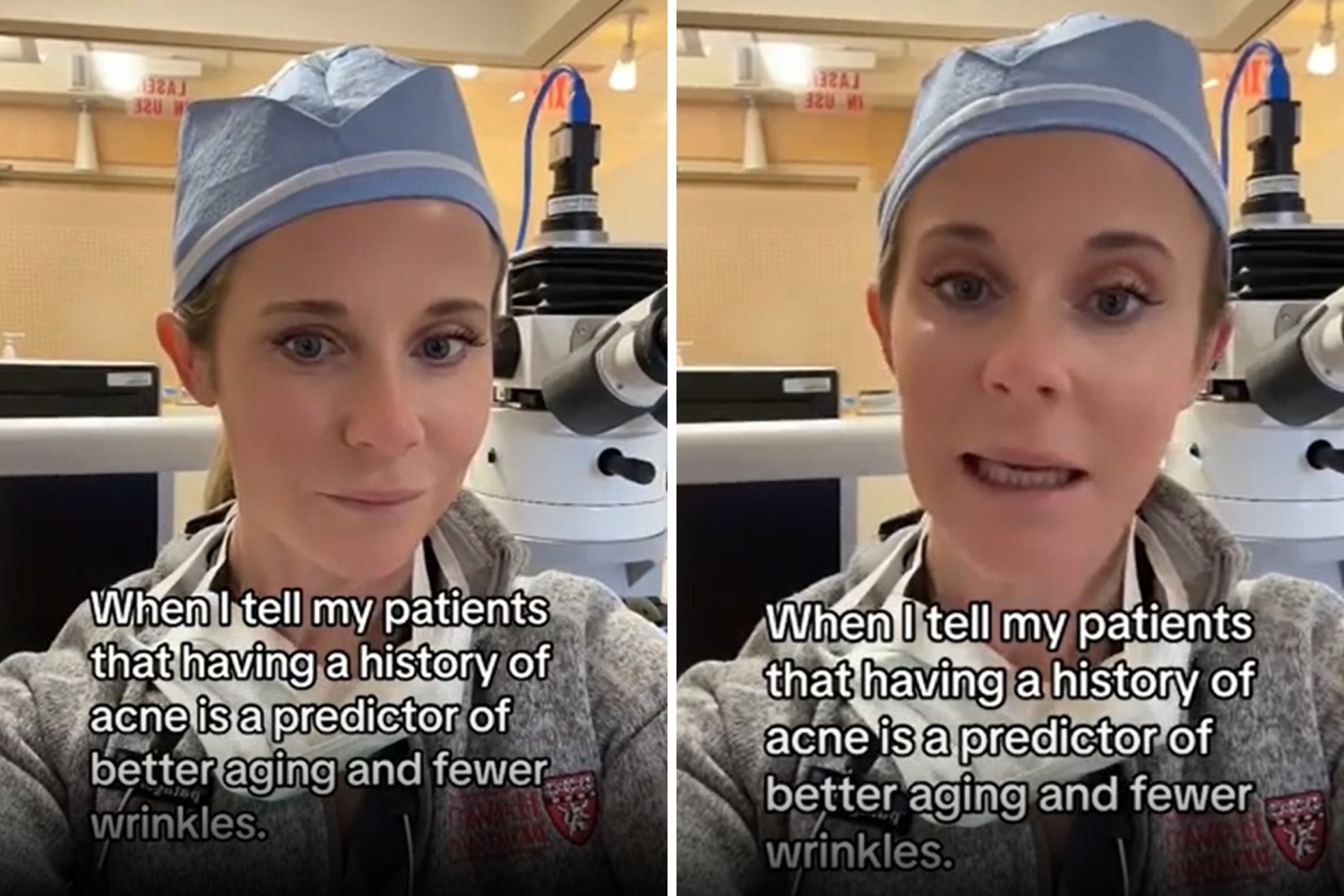
Acne is often associated with negative connotations, as it is known to affect both physical appearance and mental well-being. However, a recent revelation by Dr. Abigail Waldman has shed light on a surprising benefit of the condition.
On November 3, Waldman, a dermatologist at Brigham and Women’s Hospital in Boston, shared a video on Instagram (@abby.waldmanmd) that quickly went viral, accumulating over 9 million views.
In the video, she shares a caption: “One benefit of having acne is that your skin may age slower with fewer wrinkles than your acne-free peers.” Waldman overlays the text: “When I tell my patients that having a history of acne is a predictor of better aging and fewer wrinkles.”
She explained to Newsweek that the idea behind this is based on the theory that acne causes the skin to produce more sebum, or oil, which helps keep the skin moisturized and may slow down the aging process.
Instagram/@abby.waldmanmd
The Instagram caption references a study titled Acne and Telomere Length: A New Spectrum between Senescence and Apoptosis Pathways, published in the Journal of Investigative Dermatology in 2017.
According to the study, researchers examined twins—one with a history of acne and the other without—and found that the cells of the twin with acne had longer telomeres. The study involved 1,205 participants, of whom 293 had a history of acne. The findings suggest that acne may be associated with younger cells, providing better protection against aging.
A telomere is a segment of DNA at the end of chromosomes that acts as a protective cap. Its primary role is to prevent chromosomes from getting damaged during cell division. However, as cells divide, telomeres gradually shorten. When they become too short, the cell can no longer divide correctly and eventually dies, which is a natural part of aging.
The study found that people with a history of acne tend to have longer telomeres in their white blood cells. This may indicate that their cells are better protected from aging.
Waldman pointed out to Newsweek: “Longer telomeres have been associated with fewer signs of aging, including wrinkles, gray hairs, etc.”
This fascinating study offers a new perspective on acne, showing that, in some ways, it could actually contribute to healthier, more resilient skin over time.
Comments have poured in, many from individuals with acne sharing their personal experiences or expressing hope inspired by the news.
One woman said: “I’m 53, had acne and completely agree! My grandson’s teacher called my daughter hysterical because a ‘young woman’ came and took him! She said, ‘No, that’s my mom’ and the teacher said, ‘NO! This woman was too young!’ We had a good laugh lol. Twice we were mistaken for sisters my daughters and I feels good.”
“You’re telling me that I have to wait decades to ‘appreciate’ years of acne?! It better not disappoint me again,” said another commenter.
But not all Instagram users are convinced, one user said: “[I don’t know]… I had terrible cystic acne and I’m aging like milk.”
Is there a health issue that’s worrying you? Let us know via health@newsweek.com. We can ask experts for advice, and your story could be featured on Newsweek.
